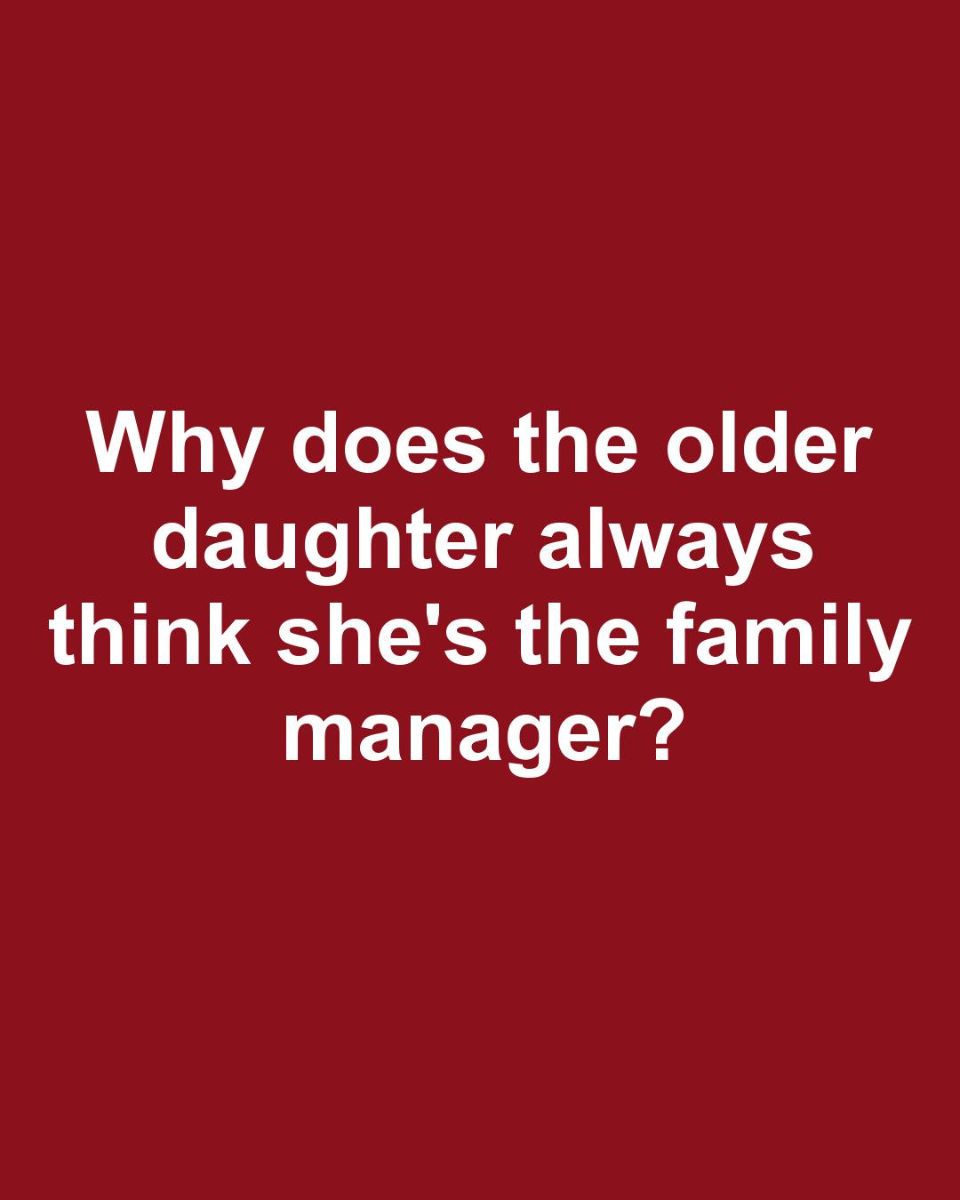
In many families, the older daughter often assumes the role of the ‘family manager,’ taking on responsibilities and leadership roles within the household. This phenomenon can be observed across various cultures and family structures, leading to the question: why does the older daughter often feel compelled to take on this role?
The Role of Birth Order in Family Dynamics
Alfred Adler, a pioneer in this field, suggested that firstborn children often develop leadership qualities and a sense of responsibility due to their initial undivided attention from parents.
As younger siblings are born, the older child may feel a need to maintain their status by taking on more responsibilities, which can manifest as a ‘managerial’ role within the family.
Cultural Expectations and Gender Roles
Cultural norms and gender roles play a significant role in shaping the behavior of older daughters. In many societies, daughters are traditionally expected to be nurturing and responsible, often taking on caregiving roles within the family. These expectations can be more pronounced for the eldest daughter, who may be seen as a secondary caregiver alongside the mother, reinforcing her position as the ‘family manager.’

The Benefits and Drawbacks of Being the Family Manager
While being the family manager can foster leadership skills and a strong sense of responsibility, it can also lead to stress and burnout. Older daughters may feel overwhelmed by the constant pressure to manage family dynamics and meet expectations.
However, this role can also be empowering, providing opportunities for personal growth and the development of valuable life skills.

Strategies for Balancing Family Roles
To ensure a healthy balance of family roles, it is important for older daughters to set boundaries and communicate their needs. Families can support this by distributing responsibilities more evenly and encouraging open dialogue about expectations. Encouraging all family members to contribute to household tasks can alleviate the pressure on the older daughter and promote a more equitable family dynamic.















